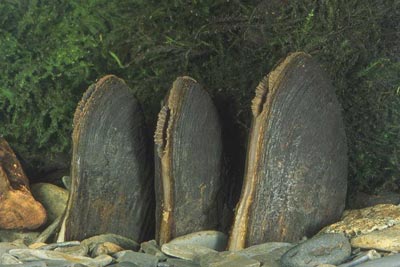At a secret location in South Cumbria the Environment Agency are saving one of the Europe’s rarest species, the Freshwater Pearl Mussel. For the first time in England, the Environment Agency has successfully bred pearl mussels in captivity. Over 2500 juveniles have been produced as part of this conservation programme to save Lancashire’s only but aging colony from the River Lune. The freshwater pearl mussel can live to over 100 years old and as their name suggests they do produce pearls. However, the Lune mussels have not been able to successfully breed in the wild for over 30 years, putting the colony in terminal decline, with only 80 adults left. Nicola Barnfather, Biodiversity Officer, said: “All pearl mussel populations in England and Wales are struggling in their natural environment as the conditions in the rivers are no longer suitable for young mussels, which need pristine water quality. This is part of a wider international problem as we’ve lost over 90% of the European population in the last 100 years. “If we hadn’t intervened and removed the mussels for a captive breeding programme they would have very soon become extinct in Lancashire.” There are a number of factors contributing to the decline of the freshwater pearl mussel. They are very sensitive to changes in water quality, increased sediment in rivers through more intensive agriculture, reduced number of salmon and trout hosts for pearl mussel larvae, illegal and destructive pearl fishing and climate change leading to low summer river flows and winter floods. Nicola continued: “We hope to rear the juveniles until they are about five years old. At this point we can return them to a suitable part of the River Lune so the population can once again become self-sustaining.” For more information visit www.environment-agency.gov.uk. |
Welcome!Log into your account











